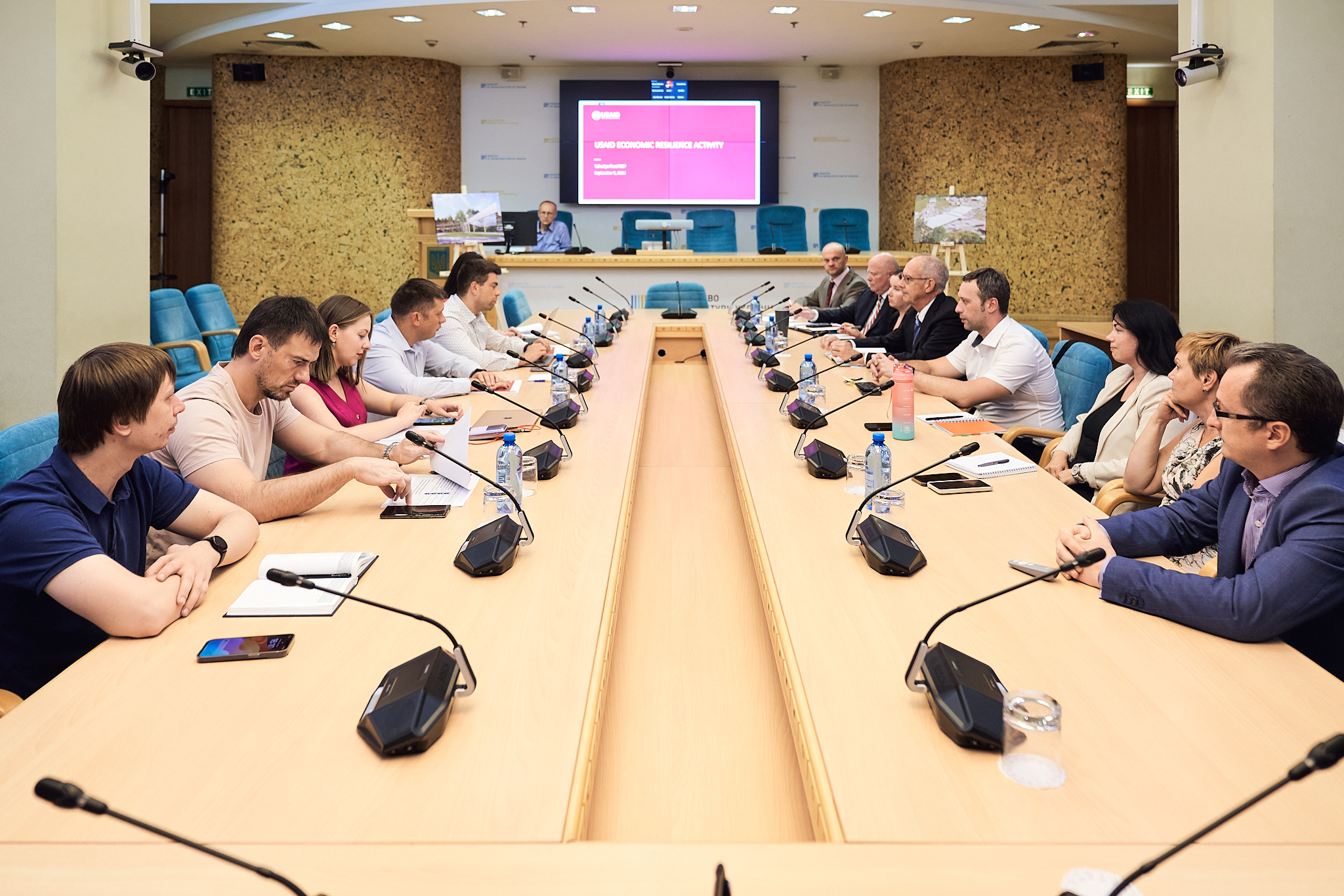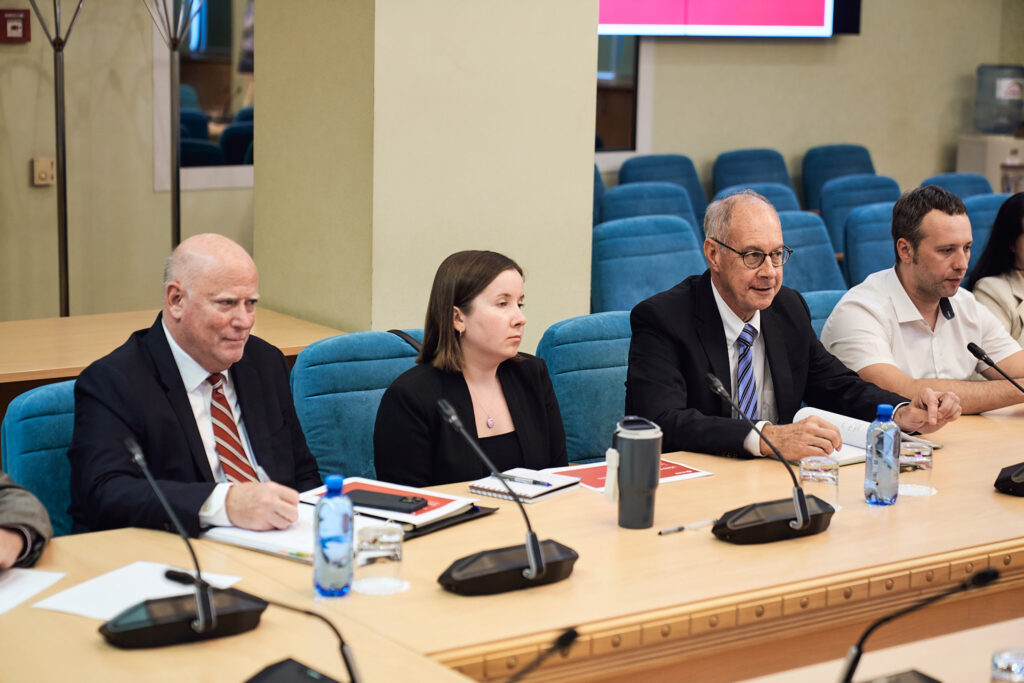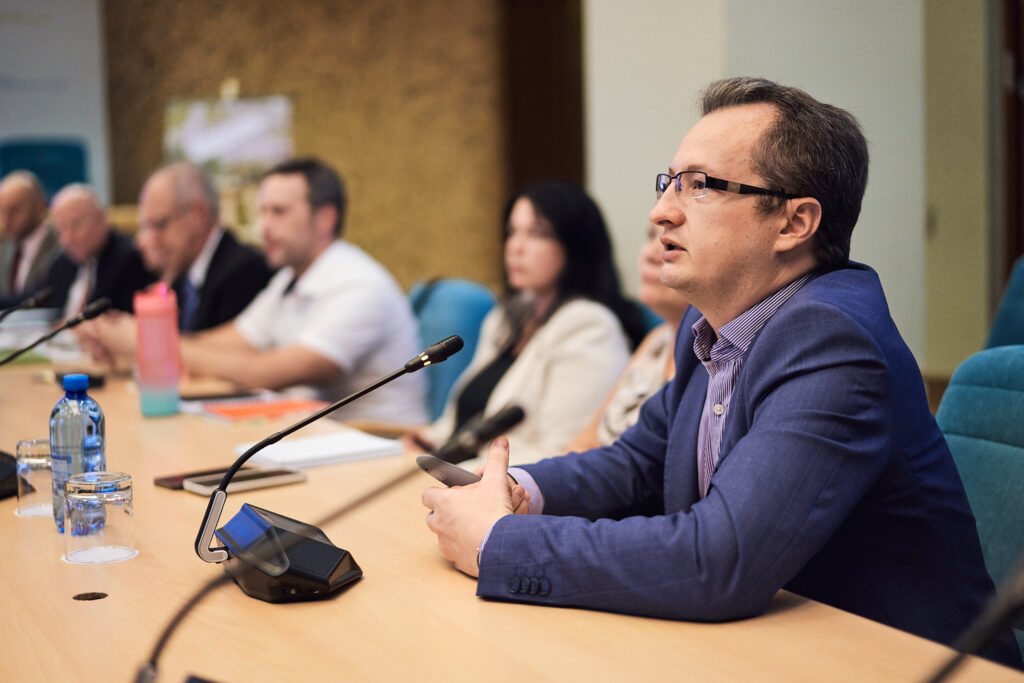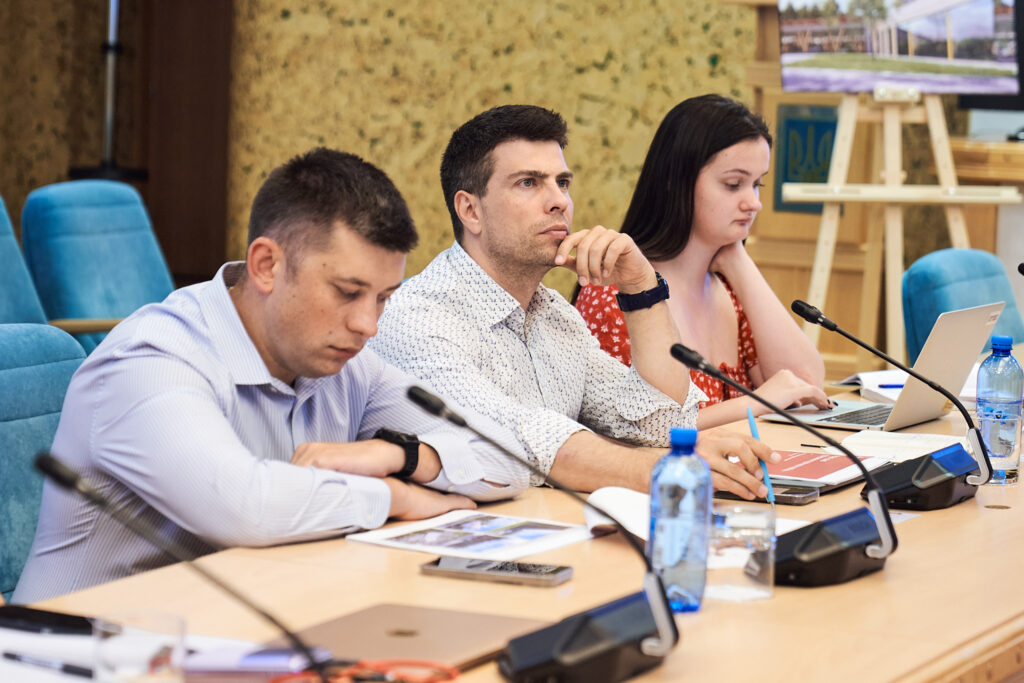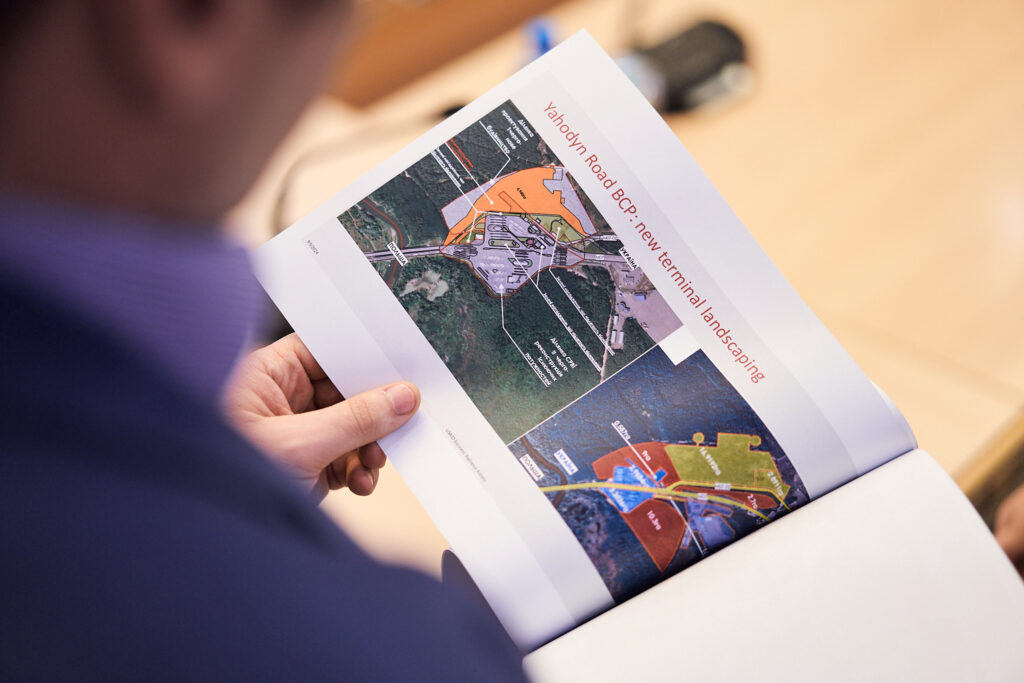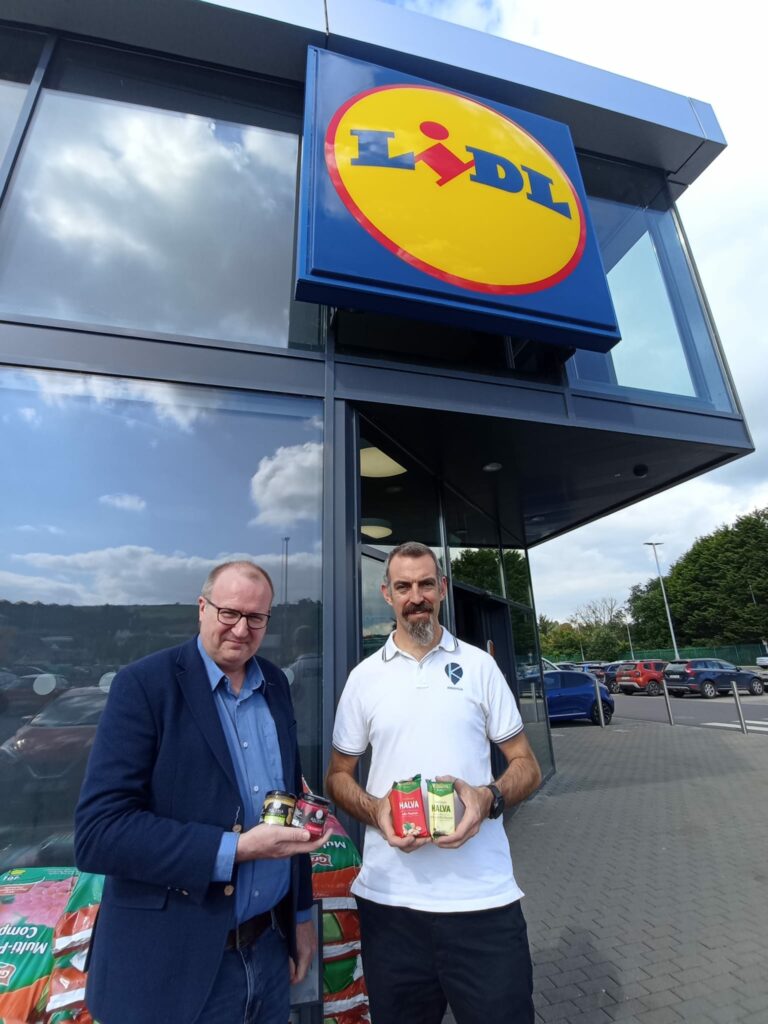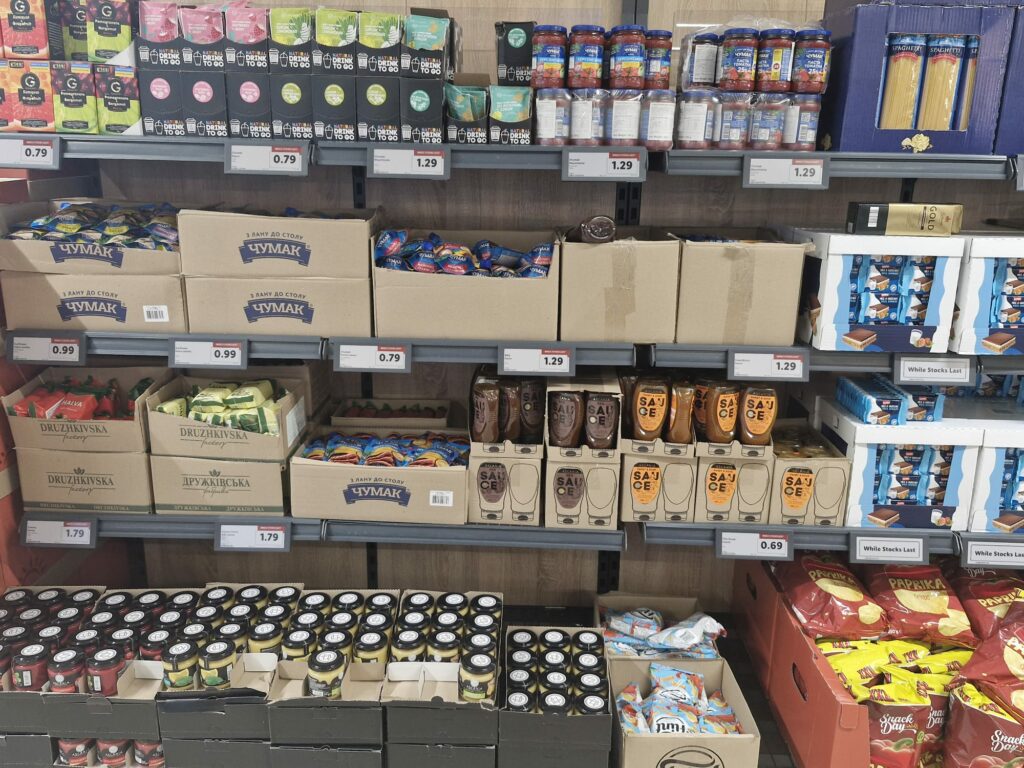Lviv / Odesa
ERA BACKGROUND
Ukraine’s efforts to win the future – emerging from Russia’s full-scale war ready to accelerate its development as a sovereign, independent, democratic, and prosperous state – require a dynamic, inclusive economic recovery. Through partnerships with the government and robust private sector engagement, ERA has supported economic growth and resilience in Ukraine since 2018.
Following Russia’s brutal invasion of Ukraine in February 2022 and subsequent occupation of the part of Ukraine, ERA shifted from its focus on Eastern Ukraine to cover development priorities across the country that address Ukraine’s urgent needs in export logistics and infrastructural improvements.
AGRI-UKRAINE GRAIN EXPORT LOGISTICS
USAID’s Economic Resilience Activity (ERA) is one of USAID’s core partners implementing the $350 million Agriculture Resilience Initiative – Ukraine (AGRI-Ukraine) that was established in 2022 to bolster Ukrainian agricultural exports and alleviate the global food security crisis exacerbated by the war. Under AGRI-Ukraine, ERA partners with public and private companies to complement and leverage urgently-needed grain transportation and transshipment investments.
INFRASTRUCTURAL IMPROVEMENTS
ERA also directly supports the Government of Ukraine, including the State Agency for Restoration and Development of Infrastructure of Ukraine (SARDI), the State Customs Service and Ukrainian Railways, to upgrade 42 of Ukraine’s border crossing points (BCPs). Modern and more efficient border infrastructure and customs procedures will reduce export costs and increase export capacity, enabling Ukraine to scale trade and advance its path to EU integration.
ENERGY AND EMERGENCY RESPONSE (EER) SUPPORT
As one of USAID’s most flexible activities that responds to emerging and/or emergency needs, ERA is expanding its interventions that assist Ukraine businesses, communities or individuals in the fall and winter (September 2024-December 2025). The goal is to minimize the impact on the Ukrainian people and economy given recent power deficits. This is an adaptive component and ERA may also need to respond to other emergency needs in the face of ongoing Russian aggression and attacks on Ukraine’s critical infrastructure.
JOB OVERVIEW
The BCP Equipment Specialist will be a key member of ERA’s BCP Support Team, responsible for coordinating the end-to-end procurement process for equipment and IT systems to enhance the operational capacity of road border crossing points (BCPs). This role involves identifying, assessing, and evaluating the needs of BCPs, developing detailed scopes of work (SOW), conducting market assessments, and preparing Requests for Proposals (RFPs) for procurement. The Equipment Specialist will manage relationships with end users, ensuring the smooth delivery, installation, and handover of equipment to BCPs. In addition, the Equipment Specialist will contribute to project reporting, documenting lessons learned, and work closely with Government of Ukraine (GoU) partners to ensure that all procurement activities align with Ukrainian legal requirements. The position reportto the Senior Manager for BCP Support and is based in Lviv or Odesa.
RESPONSIBILITIES:
- Needs Assessment and Analysis: Conduct assessments of road BCPs to identify equipment and IT system needs, ensuring alignment with operational requirements and project objectives.
- Develop Scopes of Work for RFP: Draft detailed technical specifications for equipment procurement, clearly defining requirements, deliverables, and timelines to expedite the procurement process.
- Market Assessments and Vendor Research: Conduct market research to identify potential vendors, evaluate available solutions, and ensure competitive and cost-effective procurement.
- Coordinate RFPs and Procurement Process: Collaborate closely with the Procurement team to develop detailed Requests for Proposals (RFPs), ensure all technical specifications are accurately reflected, and support the evaluation of vendor submissions.
- Quality Management: Ensure the quality of procured equipment by monitoring vendor performance and compliance with specifications during delivery and installation, coordinating with vendors and end users to address any issues.
- End User Engagement: Liaise with end users at BCPs to ensure that procured equipment meets operational needs and facilitate any necessary training or capacity building.
- Coordinate Equipment Delivery and Installation: Oversee the logistics of equipment delivery and installation at road BCPs, ensuring that installations are carried out efficiently and in line with specifications.
- Handover and Closeout: in cooperation with Inventory Team coordinate the handover of equipment to BCPs, proper documentation preparation, and facilitate with Procurement and Inventory teams a thorough closeout process for each procurement activity.
- Reporting and Documentation: Contribute to regular reporting on procurement activities, providing updates on progress, challenges, and key lessons learned for continuous improvement.
- Compliance and Coordination with GoU Partners: Ensure all procurement activities comply with Ukrainian regulations and project guidelines, working closely with Government of Ukraine (GoU) partners to ensure compliance with Ukrainian legislation.
- Cross-Team Coordination: Work in close collaboration with cross-functional teams such as Procurement, Finance, Inventory, and Communications to ensure alignment with project objectives.
QUALIFICATIONS
- BA/MA degree in Logistics and Transportation, Supply Chain Management, Business Administration, Engineering, or a related field.
- At least 5 years of experience in transportation and logistics, with a focus on complex equipment and IT systems. Experience working with government partners is highly desirable;
- Demonstrated professional experience in the private or public sector;
- Excellent communication skills with people at all levels of an organization and partners;
- An energetic, forward-thinking, and creative individual with high ethical standards and appropriate professional image;
- An extremely well-organized and self-directed individual with sound technical skills, analytical ability, good judgment, and strong operational focus;
- Fluency in English and Ukrainian is required.
JOB EXPECTATIONS:
In this position, you are expected to share the DAI four core values:
- Integrity: commit to civil and ethical behavior, play by the rules, and do the right thing;
- Responsibility: be accountable to clients, partners, grant recipients, beneficiaries, colleagues, and communities where we work. If you fall short, you own up, fix the problem, and get it right the next time;
- Excellence: adhere to the highest technical and professional standards in innovation, learning, and service;
- Global Citizenship: respect the cultural diversity and treat everyone everywhere with professionalism and dignity to make the world a better place.
WE OFFER
Contract length: 12-month employment agreement with a possibility of extension.
Benefits Package:
- 28 calendar days of annual leave
- 10 days of internal well-being paid leave per annum
- Medical Insurance for ERA staff and their families
- Life Insurance for ERA staff
- Coverage of all expenses for the business trips
- Military reservation is possible and granted if you are on a relevant military register
Start date: October 2024
Application process
All applicants must send a cover letter and updated CV (no longer than four pages) in English to ukraine@dai.com
All qualified applicants will receive consideration for employment without regard to race, color, religion, sex, sexual orientation, gender identity, national origin, disability, age, or status as a protected veteran.
Closing date for applications: September 19, 2024.
For further information about DAI GLOBAL LLC, please consult our website era-ukraine.org.ua.
